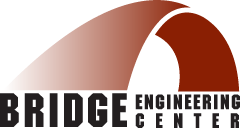Researchers
Kelly Strong
Daniel Enz
About the research
The goal of this research is to mitigate the risk of highway accidents (crashes) and fatalities in work zones. The approach of this research has been to address the mitigation of work zone crashes through the creation of a formal risk management model to be utilized during the construction management and administration of highway projects for all stages of the project life-cycle. The result of these efforts is realized through the design of an integrated risk management model. A standard risk management model has three components: risk identification, risk analysis, and risk response. The risks are identified by the factors that contribute to work zone crashes. The risk analysis involves understanding the tendency of a hazard to influence the frequency or severity of a loss, and the risk response relates to the appropriate countermeasures to the factors that contribute to work zone crashes. The number of hazards and mitigation strategies corresponding to work zone crashes can be substantial.
The intent of this research is to develop a formalized risk management plan to identify potential hazards on plans, designs, or jobsites and to cue a risk response to the hazards. Mitigation strategies may take the form of a mitigation method (alert motorist, assist worker/motorist, control motorist, inform motorist, and protect worker/motorist).
The results of this research will be a formal step-by-step methodology to be utilized by managers and decision makers. Each stage of the project life-cycle (or Project Development Process) will provide a checklist of hazards and mitigation strategies.
This research will also provide a qualitative method to assess the likelihood and severity of a hazard or multiple hazards on a roadway work zone. This research is intended to provide a holistic approach to risk management that is to be integrated into the existing corporate structure and not to be considered a standalone program. This integrated approach will allow a formalized procedure to be utilized by any member of an organization during all phases of the construction project life-cycle.
Funding Sources:
Midwest Transportation Consortium ($60,774.00)
Total: $60,774.00
